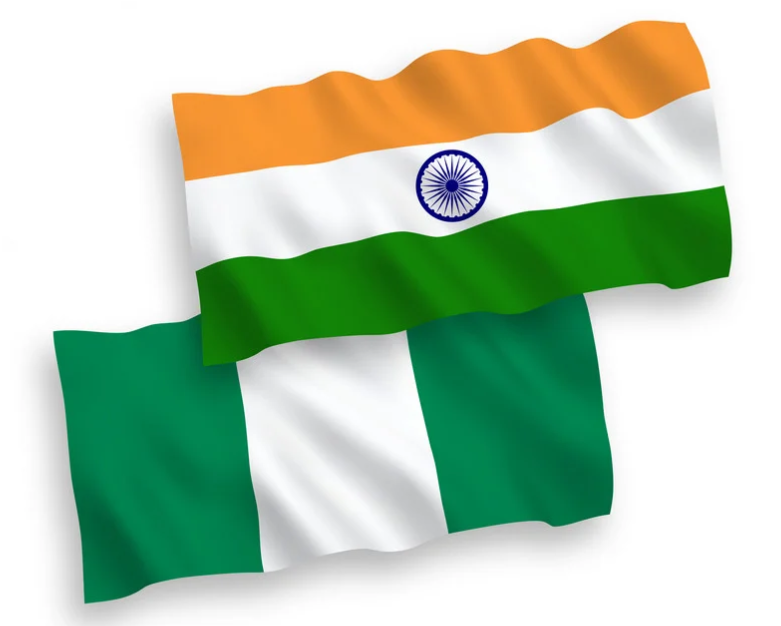Introduction
The relationship between Nigeria and India extends back several decades, beginning shortly after Nigeria’s independence when India provided crucial support, particularly through technical assistance and capacity building.
Cultural ties deepened further during the 1990s, as Nigerians enthusiastically embraced Bollywood films, creating a shared cultural landscape.
Today, this connection continues to thrive economically, with numerous Indian businesses actively operating within Nigeria across sectors such as pharmaceuticals, telecommunications, and manufacturing.
Consequently, efficient and secure cross-border payment systems have become critical in supporting this vibrant bilateral exchange.
This article explores the current state of cross-border payments between Nigeria and India, examining methods, challenges, and Fincra’s solutions designed to facilitate smoother financial transactions between these two closely connected nations.
The Nigeria-India trades
Trade is the bedrock of any cross-border payment system, and Nigeria and India share a deep and dynamic trade relationship that fuels the necessity for seamless financial transactions.
Nigeria exports vital commodities such as crude oil, agricultural products, and solid minerals to India, while India sends pharmaceuticals, textiles, technology, and industrial machinery in return.
These exchanges are not limited to goods alone. Nigeria’s growing number of students in Indian universities and patients seeking medical treatment in Indian hospitals further solidify these ties, bringing people-to-people transactions into the mix.
Indian businesses also play a major role in Nigeria’s economy. According to the Indian High Commission in Abuja, Indian investments in Nigeria are currently valued at over US$15 billion and rising.
With more than 135 Indian companies operating in Nigeria, ranging from telecommunications giants like Bharti Airtel to manufacturing powerhouses such as Tata, Bajaj Auto, Mahindra, and Godrej, Indian firms have become the second-largest employers in Nigeria, following the Nigerian Federal Government.
These firms span a broad spectrum of sectors including pharmaceuticals, plastics, steel, electrical equipment, and IT services.
Another interesting sector of the Nigeria/India trade relationship is the human hair industry.
India is the global leader in human hair exports, accounting for 93% of the world’s supply, valued at approximately $187 million in 2023.
Nigeria, in turn, imported about $497,000 worth of Indian hair products in the same year, driven by the country’s booming beauty industry and a cultural preference for Indian hair, especially for styles like the popular ‘bone straight’ wigs.
Between October 2023 and September 2024, India exported over 1,500 shipments of human hair to Nigeria, a 51% increase from the previous year, reflecting growing demand and deepening trade.
These various forms of exchange, from industrial imports to lifestyle products, demonstrate the diverse and evolving nature of Nigeria-India trade.
But underpinning all these transactions is one critical factor: cross-border payments. For trade to happen, payments must be seamless, secure, and efficient.
Whether it’s a Nigerian distributor paying an Indian pharmaceutical firm or a Lagos-based hair vendor purchasing bundles from Chennai, the strength of the financial infrastructure between the two countries is what sustains these exchanges.
These real-world trade flows are the clearest use cases for the cross-border payment systems explored in this article.
Current methods for Nigeria-India cross-border payments
Cross-border payments between Nigeria and India take many forms, each adapted to different sectors and needs.
The diversity in trade, ranging from oil and industrial equipment to human hair and tuition fees, demands a flexible array of payment systems.
Below are the key methods in use today, including how and where they are most commonly applied.
International bank transfers
Used predominantly in high-value, formal business transactions, international bank transfers are the go-to option for sectors such as oil, pharmaceuticals, manufacturing, and engineering.
Nigerian distributors and Indian manufacturers rely on the SWIFT network to move funds securely between bank accounts. While this method is regulated and widely accepted, it is often hampered by long processing times, high fees, and sometimes unfavorable exchange rate margins.
Money transfer operators (MTOs)
Money Transfer Operators like Western Union, MoneyGram, and WorldRemit cater primarily to personal remittances, education, and healthcare-related payments.
Nigerian students paying tuition fees to Indian universities or families sending money for medical tourism typically use these services due to their ease of access and relatively fast processing.
However, there are limits on transaction sizes, and compliance requirements vary by corridor.
Cryptocurrency
Cryptocurrencies and stablecoins are emerging as alternative payment methods for a range of users involved in Nigeria-India transactions. Nigerian students studying in India, patients seeking medical treatment, and business owners, particularly those importing goods from India, are increasingly turning to digital assets like Bitcoin and USDT for cross-border payments.
These methods are also used by Indian nationals working or doing business in Nigeria to remit money back home.
By leveraging blockchain-based transactions, users are able to bypass traditional banking channels, avoiding the long delays, high fees, and currency conversion issues that often plague formal systems.
Informal agents
One notable and often overlooked payment method is through informal agents, particularly in the hair and beauty industry.
Nigerian hair vendors frequently bypass formal financial systems by partnering with informal agents, who often double as logistics providers.
These agents accept naira in Nigeria and remit the rupee equivalent to suppliers in India using personal or community networks.
This method is fast and built on trust, but it lacks transparency, traceability, and legal safeguards, making it riskier despite its widespread use in certain informal trade circles.
Fincra’s solutions
One of the most exciting developments in the Nigeria-India cross-border payments landscape is the rise of homegrown fintechs building robust financial infrastructure across Africa. Among these innovators, Fincra stands out as a leading enabler of seamless and transparent payments for businesses and individuals.
Fincra powers cross-border transactions by offering fast, cost-effective, and secure payment rails that meet the needs of modern African trade.
Whether it’s a Nigerian SME sourcing pharmaceutical products from India or an individual remitting funds for medical or educational purposes, Fincra ensures that transactions are completed with minimal friction and maximum efficiency.
By providing APIs and payment solutions tailored to the unique dynamics of intra-African and global trade corridors, Fincra is helping African businesses make payouts to virtually any destination, including India. The Nigeria-India corridor is no exception. Through its innovative infrastructure, Fincra is facilitating not just payments, but trade, trust, and long-term business growth.



